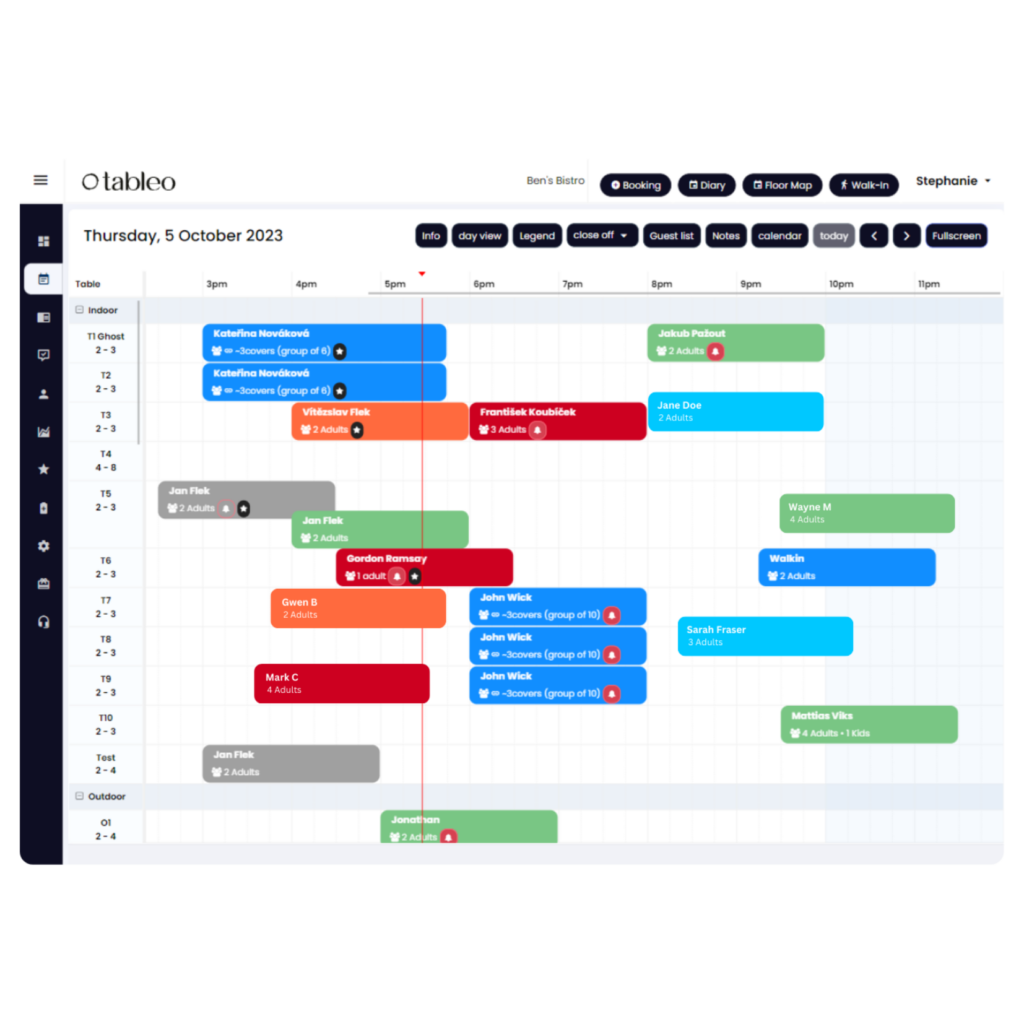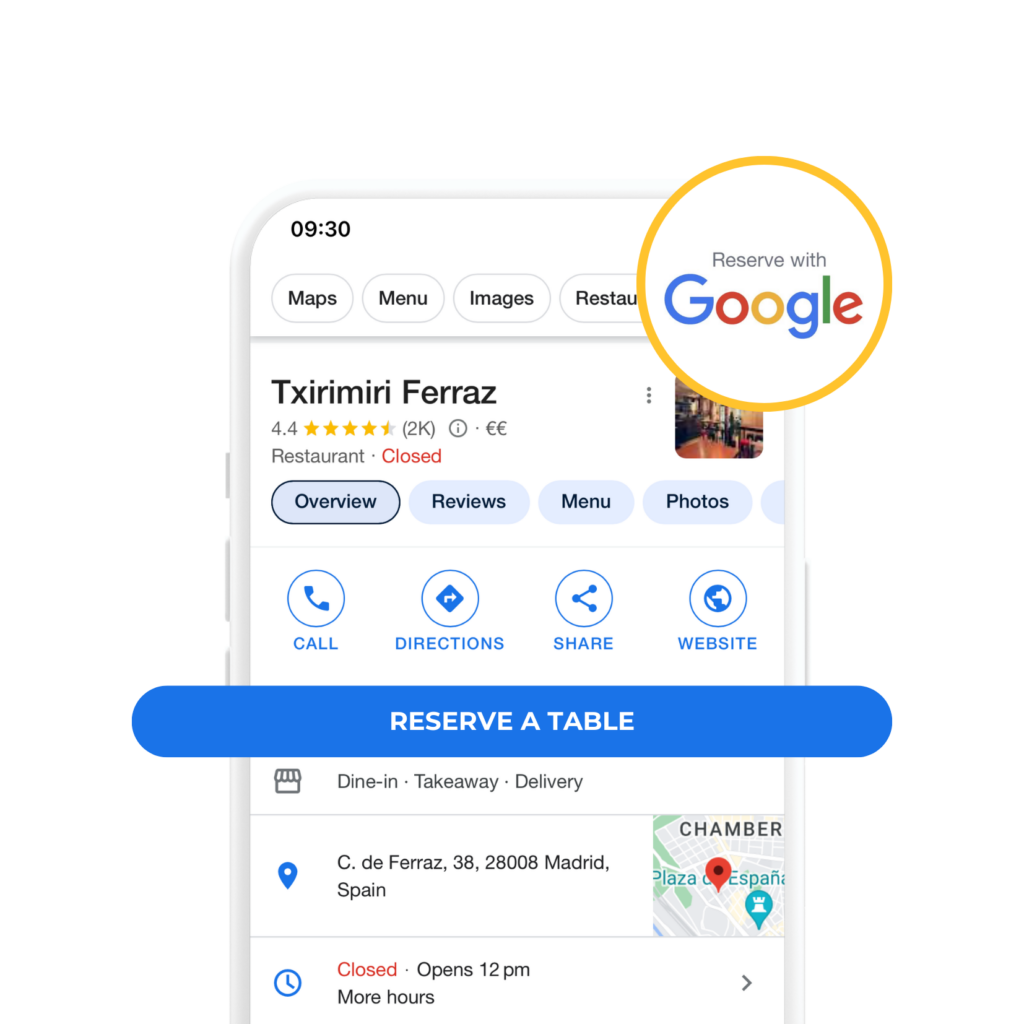Running a restaurant is undoubtedly a multifaceted and demanding endeavor. From overseeing personnel and crafting menus to ensuring an exceptional customer experience, the responsibilities are seemingly endless.
However, among the plethora of tasks that can consume valuable time and resources, managing phone reservations stands out as particularly challenging. The constant influx of calls, the need to record information accurately, and the challenge of organizing reservations, especially during peak hours, can overwhelm restaurant staff.
Moreover, in today’s fast-paced world, where customer expectations are higher than ever, the pressure to provide seamless service only adds to the complexity. Time spent on the phone handling reservations is time taken away from other critical aspects of running the establishment, such as supervising the kitchen, ensuring food quality, and attending to guests’ needs. Thus, finding efficient solutions to streamline the reservation process is imperative for the overall success and smooth operation of the restaurant.
Time-consuming and ineffective
Consider the time it takes to make a reservation over the phone—typically 3 to 5 minutes, if not longer during busy periods. Both customers and staff may find this process frustrating; customers may be put on hold while staff attend to other duties, leading to potential dissatisfaction and lost business opportunities.
Moreover, the challenge of managing phone reservations doesn’t solely revolve around peak hours. There’s also the issue of reservations made outside of regular restaurant hours, where a staff member may have to hastily jot down information, increasing the likelihood of errors and double bookings. This not only adds to the administrative burden but also jeopardizes the dining experience for customers if their reservations are mishandled. As such, finding efficient alternatives to traditional phone reservations becomes crucial for enhancing operational efficiency and delivering exceptional customer service.
Telephone etiquette
Furthermore, even if the manager can effectively handle phone bookings, can the same be said for all staff members? In an era where finding proficient waiting staff is challenging, compounded by language barriers and a decline in telephone etiquette—especially among younger generations who prefer text-based communication—restaurants face an uphill battle in ensuring seamless customer interactions. This presents a significant hurdle in maintaining consistency and professionalism in managing reservations, as miscommunications and misunderstandings can easily arise, leading to customer dissatisfaction and potential loss of business.
To overcome these challenges and enhance customer engagement, a shift towards online bookings is imperative. This transition has gained momentum, particularly in the wake of the COVID-19 pandemic, where safety concerns and social distancing measures have prompted a surge in demand for contactless solutions. Many diners, especially millennials, now prefer the convenience of making reservations online, often through platforms like Instagram and Facebook. By embracing digital platforms for reservation management, restaurants not only streamline their operations but also cater to the preferences of modern consumers, thereby staying ahead in an increasingly competitive industry landscape.
Make it easier for customers to take online action
However, making the switch to online bookings may seem daunting for some restaurant owners. Here are actionable tips to streamline the process and encourage customers to book online:
Invest in an online reservation system: Implementing an online reservation system like Tableo’s website widget can streamline the booking process and elevate the customer experience.
This state-of-the-art technology not only streamlines the reservation process but also significantly reduces the likelihood of errors inherent in manual booking systems. Customers can easily access the restaurant’s availability, select their preferred date and time, and reserve a table with just a few clicks, all from the comfort of their own devices.
Moreover, such systems offer added convenience by allowing diners to customize their bookings, specifying any special requests or dietary preferences upfront. This level of customization not only improves customer satisfaction but also enables restaurants to better accommodate their patrons’ needs.
Additionally, advanced reservation systems often come equipped with features like automated reminders and confirmations, ensuring seamless communication between the restaurant and its guests. Overall, investing in an online reservation system represents a strategic move for restaurants looking to stay competitive in today’s digital age, offering a streamlined booking process that enhances efficiency and elevates the overall dining experience.
Enable direct bookings from social media: This is a strategic move for restaurants seeking to maximize their online presence and engage with customers on popular platforms. By seamlessly integrating a “Book Now” button onto their social media profiles, restaurants can significantly enhance their visibility and accessibility to potential diners. This proactive approach not only simplifies the booking process but also fosters direct engagement with customers, as they can initiate reservations without leaving their preferred social media platform.
Furthermore, with the increasing prevalence of mobile usage, enabling direct bookings from social media allows customers to make reservations conveniently from their smartphones or tablets, catering to their on-the-go lifestyles. This integration not only enhances the overall customer experience but also reinforces the restaurant’s brand presence across multiple digital touchpoints. By embracing this innovative approach, restaurants can stay ahead of the curve in the competitive hospitality landscape and effectively leverage social media as a powerful tool for driving reservations and fostering customer loyalty.
Get a “Reserve a Table” button on Google: Enhance online visibility and customer acquisition by enabling customers to make reservations directly from Google search results and maps, bolstering SEO efforts in the process. Learn more about “Reserve with Google”
Promote online reservations: Educate customers about the benefits of booking online through website and social media channels, ensuring staff members are equipped to guide customers through the process.
By leveraging these digital platforms effectively, restaurants can reach a wider audience and showcase the convenience and advantages of online reservations. This may include highlighting features such as real-time availability updates, easy-to-use interfaces, and the ability to customize bookings to suit individual preferences.
Moreover, staff members should be thoroughly trained and equipped with the necessary knowledge and tools to guide customers through the online booking process seamlessly. This entails providing comprehensive training sessions to familiarize staff with the online reservation system’s functionalities and addressing any concerns or queries customers may have.
By empowering both customers and staff with the necessary information and resources, restaurants can foster a culture of digital engagement and streamline the reservation process, ultimately enhancing operational efficiency and delivering an unparalleled dining experience.
To Conclude
In summary, the adoption of online booking systems represents a pivotal step forward for modern restaurants striving to optimize their operations and enhance customer service. By implementing these strategies, establishments can markedly diminish the burden of managing phone reservations, thereby liberating valuable staff resources for more pressing responsibilities.
Furthermore, the streamlining of the booking process extends far beyond mere operational efficiency; it directly impacts the overall dining experience. Simplifying reservation procedures not only facilitates smoother transactions but also cultivates a sense of convenience and ease for patrons. This, in turn, fosters heightened levels of customer satisfaction and engenders loyalty to the restaurant brand.
However, it’s essential to recognize that an online reservation system is just one component of a broader array of key restaurant technologies. From digital menu platforms to efficient kitchen management software, leveraging technology effectively is paramount for staying ahead in the industry.
In essence, embracing online bookings represents not only a pragmatic response to operational challenges but also a strategic investment in the long-term success and growth of the restaurant business. By recognizing the transformative potential of digital solutions, establishments can position themselves as leaders in delivering exceptional dining experiences that resonate with modern consumers.
Embracing online bookings is essential for modern restaurants looking to streamline operations and elevate customer service. Implementing these strategies can significantly reduce the volume of phone calls, freeing up staff time for more critical tasks.



